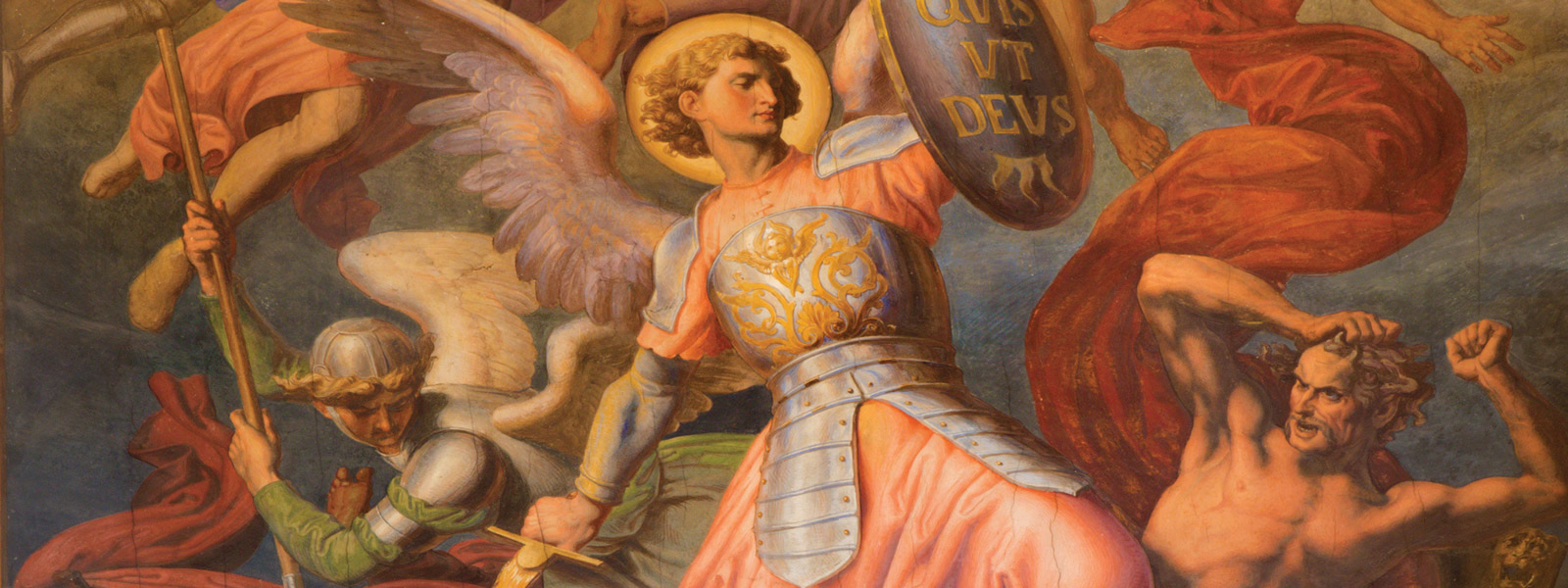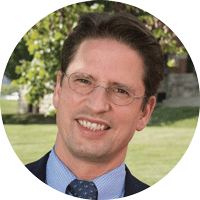

| Catholic University faculty and students are immersed in a culture of research. In this series we offer a sampling of the many big questions they are working on. |

In the Middle Ages, angels were seen as interesting cases for discussions about free will. Philosopher Tobias Hoffmann explores this topic in his recent research.
“It’s difficult to say when human beings ever made a really free decision, because our decisions are conditioned by factors not under our control, such as our upbringing, emotions, the environment, peer pressure, and whatever knowledge we happen to have acquired.
“In the free will debate in the Middle Ages, Christian theologians had to come to terms with cases where these external factors were reduced to a minimum: the decisions of the angels that rendered them either permanently bad (such as Lucifer) or permanently good (such as Michael).”
“Thomas Aquinas and other medieval theologians studied the fall of the angels to clarify the relation between free will and knowledge of what is good. Even Lucifer doesn’t do evil just to do evil — he wants something good from it: to be equal to God, to be superior to others. But how can he be blamed for desiring what he thinks is best?”
“The two main camps were the intellectualists and voluntarists. Intellectualists said we never choose differently from what we think is best, so we make bad choices because we don’t know better. Voluntarists disagreed; they said we make bad choices because we have an evil will.
“I study how our intellectual ancestors talked about free will. We can learn from their answers to the most difficult questions. Since the ways we think about free will grow out of earlier theories, we also understand how our views are conditioned by these thinkers.”
Tobias Hoffmann is a professor of philosophy. His newest book, Free Will and the Rebel Angels in Medieval Philosophy, is forthcoming from Cambridge University Press. His research interests include ethics, moral psychology, and metaphysics, especially in the 13th and early 14th centuries.